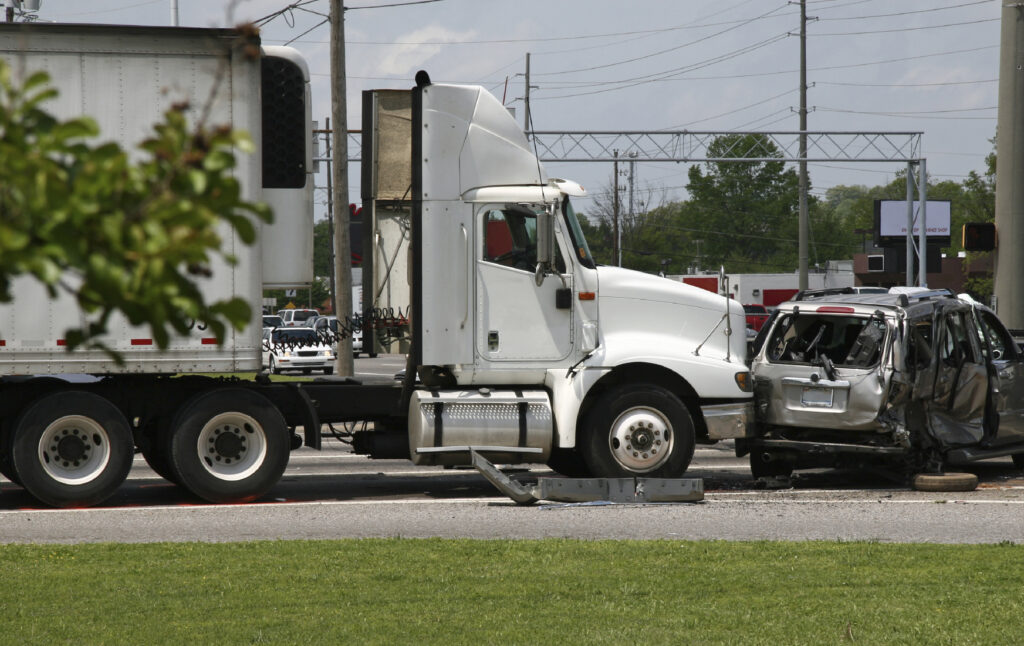In May 2025, driverless semi trucks hit the road in North Texas. Proponents of these driverless trucks (and other fully automated commercial vehicles) are pushing the idea that these will ultimately reduce or even eliminate the risk of serious motor vehicle crashes.
Despite being an idea everyone can support, we are still a long way from achieving such a feat. Several tech companies have already received approval to test automated trucks on public highways. Here’s why that could prove to be a bad idea.
What Is an Automated Semi Truck?
The National Highway Traffic Safety Administration (NHTSA) groups vehicle automation tools into six categories, ranging from Level 0 to Level 5. Level 0 mechanisms provide momentary driver assistance, such as lane departure warnings. By Level 4, the onboard system is fully responsible for driving tasks, meaning a human driver is usually no longer needed.
Level 5 automation is the goal that driverless vehicle technology companies strive for. It is the pinnacle of automated driving technology, wherein occupants act only as passengers. In the case of Level 5 automated semi trucks, occupants won’t be necessary at all.
What Makes Automated Trucks Dangerous to the Public?
Automated vehicles always pose a risk of malfunctioning, and with driverless semi trucks just starting to navigate the roads in mid-2025, only time will tell if these concerns come to fruition.
Still, even now, there are some very real dangers associated with testing self-driving trucks in live traffic, such as:
- Delayed responses to hazards
- The inability to function in unusual road conditions
- Sensor and software failures
- No human intuition
Additionally, unlike closed courses, public highways are dynamic environments that even the most advanced AI system may struggle to process in real time. For instance, it may not be prepared to slow down or swerve to avoid debris in a travel lane, or get away from a shoulder quickly enough to avoid striking a stranded driver who is changing a tire.
Altogether, these factors create dangerous scenarios wherein automated trucks may very well put your family in danger.
Does Florida Support Autonomous Vehicle Testing?
Florida has taken an aggressive stance in supporting autonomous vehicle testing. Florida Statute 316.85 allows AVs to operate without a human driver behind the wheel, as long as they meet basic insurance and safety requirements.
That certainly positions Florida as an appealing location for AV research and development, but it cannot be overlooked that the law prioritizes innovation over public safety. The state does not currently require public notice of when or where AV tests will occur, either, meaning you won’t know they are happening unless you pull up beside a driverless truck.
What Jacksonville Drivers Should Know
Cargo trucks, semi trucks, and other commercial vehicles already flood areas like Jacksonville every day, which means that if testing of automated trucks is to become more widespread in Northeast Florida, you will likely encounter these vehicles during your daily commute.
From a liability standpoint, automation makes any personal injury case far more complicated. Accident victims and their attorneys will need to investigate the trucking company, software developers, vehicle manufacturers, and any third-party testers involved.
Call Our Jacksonville Truck Accident Attorneys at The Truck Accident Law Firm for a Free Consultation
One day, driverless semi trucks may truly eliminate the risk of commercial vehicle crashes. But testing them on public highways today means all road users must be fully aware of the dangers of truck accidents caused by runaway technologies and faulty sensors.
Together, Florida residents can band together to demand transparency and regulation. And until then, automated truck testing should be approached with caution. If you get into a wreck with an automated vehicle, call the Jacksonville truck accident attorneys at The Truck Accident Law Firm for a free consultation.





